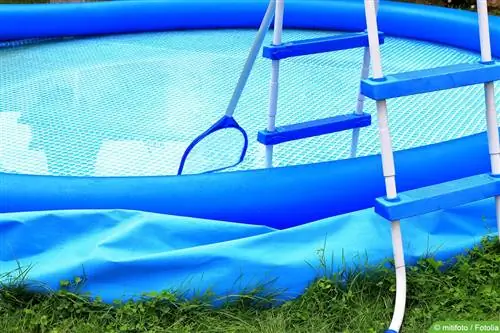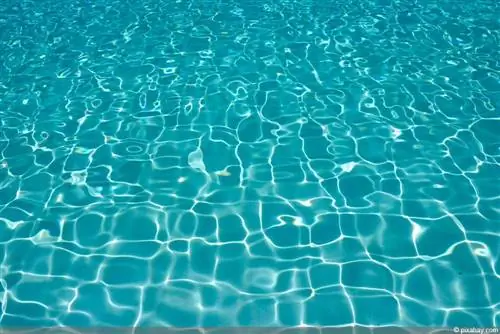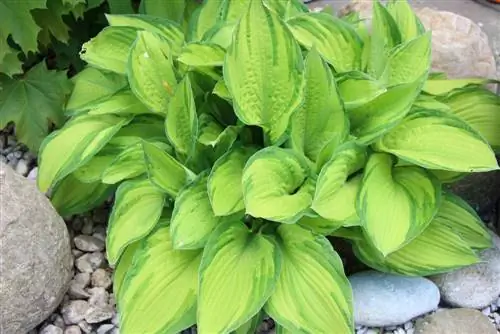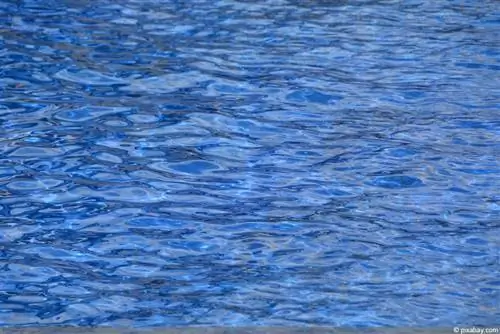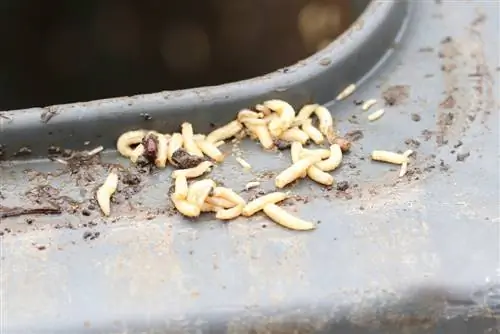- Author admin caroline@plants-knowledge.com.
- Public 2023-12-17 03:39.
- Last modified 2025-01-24 12:45.
We explain which animals are in the pool and why you should avoid an infestation as best as possible!
Larvae and maggots in the pool
The worm-like animals are not worms per se, but actually mosquito larvae. The female mosquito prefers to lay its eggs in stagnant water, from which swimming larvae subsequently develop. Which type of mosquito it is can be visually identified by the color of the larvae:
- red larvae: chironomids
- white larvae: tussock mosquito
- black larvae: mosquito
Note:
While the tussock mosquito is rather rare in this country, chironomies and biting mosquitoes are much more widespread.
Red larvae in the pool
Red worms in the pool indicate an infestation withChironomids. There are over 1,000 species of this mosquito in Central Europe alone, and over 5,000 worldwide. Due to this diversity of species, mosquitoes and therefore also larvae can be expected in the pool at any time of the year:
- Early spring species: March/April
- Spring types: April/May
- Summer species: June/July
- Autumn start: September/October
Chironomids are among the less annoying specimens because, unlike mosquitoes, they do not bite. They are actually extremely useful because the red mosquito larvae serve as a food source for amphibians and birds. Fish also like to eat the little worms, which is why the larvae are bred for this purpose and sold as fish food.
- Lifespan: a few days
- Body shape: slim, prominent mouthparts
- Movement rhythm: meandering
Info:
Red mosquito larvae protect themselves from predators by retreating into self-built tubes.
Black larvae in the pool
Black worms in the pool are most likely the larvae of the hatedmosquito The annoying insects owe their name and bad reputation to the females, because they bite like to eat and then suck out the blood. This process is essential for insect reproduction and subsequent egg production. However, the bites are not only unpleasant and annoying for us humans, but also dangerous to our he alth!
- Mosquito bites swell a lot and itch
- Allergy potential
- Weakening of the immune system
- Transmission of diseases and bacteria
Note:
The tropical diseases “West Nile and Zika viruses” are now also widespread in Germany and can be transmitted via mosquitoes!
Causes of larvae in the pool
A pool offers insects of all kinds good shelter and optimal nesting opportunities, after all it is almost constantly humid there and sometimes even relatively warm. The insects not only lay their eggs on the water, but also in the tiniest corners and cracks. In areas that are difficult to access, the animals are usually undisturbed so that they can reproduce and spread in peace. But not only the general site conditions, but also the weather and hygiene can promote mosquito infestation:
- unclean pool/water
- Contamination in the filter system
- inadequate cleaning before winter
- poor water quality
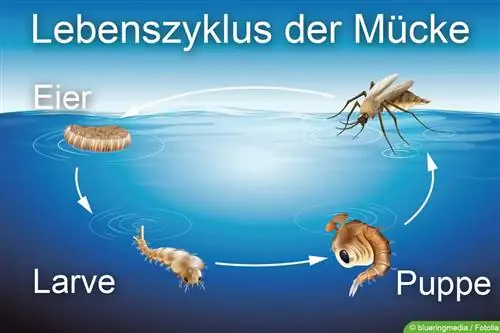
Prevent mosquito infestation
To prevent larvae from appearing in the pool in the first place, pool owners can and should take certain precautionary measures. This is recommended because finding the exact cause usually involves a lot of effort and is not always possible. However, worms in the pool can be avoided with simple measures:
Water quality
The water quality is not only essential for carefree splashing around in the pool, because it also ensures that mosquitoes do not spread freely. It is therefore advisable to regularly check the water quality and the pH value.
- pH value: between 7.0 and 7.6
- Total alkalinity: between 80 and 150 ppm
- Calcium hardness: between 200 and 400 ppm
- Chlorine values: between 1.0 to 3.0
Note:
Chlorine is broken down by the sun over time, which is why the pool water must be chlorinated regularly!
Clean water
Impurities in the water can be removed manually with a landing net, although one with a long gripping arm and very fine mesh is best suited for this purpose. This can be used to remove not only small insects, but also larger collections of larvae from the water. It is also advisable to run the water through a filter system and use a pool vacuum or pool robot.
Clean pool
Regular cleaning of the pool is directly related to the water quality and is also essential to prevent mosquitoes. The pool should also be thoroughly cleaned before winter storage in the fall. This prevents mosquitoes from overwintering in the pool area.
- drain the water completely in autumn
- clean entire area
- clean all equipment
- Disinfect niches, drains and inflows
Note:
The pool cover protects the pool from uninvited guests even in summer and should be thoroughly cleaned in autumn at the latest!

